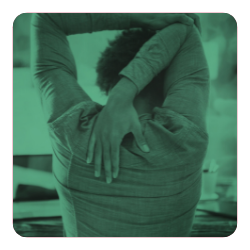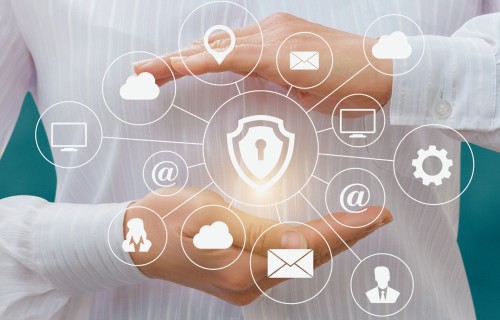When the psyche suffers: Mental health in times of the pandemic
"A healthy mind dwells in a healthy body” – the ancient Romans already knew that. But in times of Corona, many people find it more and more difficult to keep themselves mentally healthy. Mental health problems can take many forms, ranging from short-term stress to chronic illness. The main triggers are stressors. These are stressful factors that endanger physical health. The likelihood of mental problems increases with the frequency and intensity of these stressors, especially for people who already suffer from mental stress. The number of mental illnesses has been increasing for years. The most common causes are excessive demands at work and overload in everyday life, but also too high expectations of oneself.
Violence, depression, loneliness - psychological stress and its consequences
This trend is likely to increase significantly with the Corona crisis. This is because it is generally understood to be an ongoing stress situation. Growing existential fears, increasing insecurity and constant pressure to adapt are just some of the stressors that affect people during the pandemic. The effects of the Covid crisis on the people have already been examined in numerous studies. Even in the first wave, the consequences of lockdown, quarantine, and other restrictions on daily life were seen in the affected populations: Increasing alcohol and drug abuse, rising domestic violence caseloads, depression and loneliness. The figures are alarming – even in Germany. In a representative survey around 3 percent of women stated that they had been victims of physical violence during the time of the first contact restrictions. Children were even targeted in over 6 percent of households. When the psyche suffers, this suffering often results in physical violence. Yet, according to the study, only very few of those affected made use of existing offers of help.
Individual stresses: Certain occupational groups are particularly at risk
Mental health in the workplace also faces a stress test in times of Corona. Certain occupational groups are more affected by the effects of the pandemic than others. In particular, people who are actively involved in crisis management themselves, as well as those who cannot work from home, are considered to be at particular risk. While home office can also have a positive effect on the mental health of employees according to initial findings, a lack of social contacts and the balancing act between work and private life are perceived as an additional burden. Women are far more likely to be affected by these burdens, as in many households they have to shoulder a large part of the additional stress caused by homeschooling and childcare, simply due to the gender-typical responsibilities. But how can mental health be effectively protected? And what can employers do to sustain mental health in the workplace?
What companies can do: Open exchange and active support
Even simple measures help to improve one's own mental health. Particular importance is attached to one's own social environment - which is, of course, easier said than done in times of strict contact restrictions. But digital communication media make it possible to stay in touch with friends, relatives and work colleagues even during the pandemic. Within the family, individual concerns and needs should be addressed openly so that solutions can be worked out together. Employers should also be forgiving during these days and show understanding for the individual situation of their employees and managers. Regular meetings, as well as informal exchanges within departments and teams, enable to identify potential overload at an early stage and take action in good time. Additional offers of support for people who are particularly affected or at risk create trust and help to reduce stress in a targeted manner. Preventive measures to protect mental health are not only part of a company's duty of care, but also an expression of appreciation and a positive corporate culture.
With Security Island's online courses, employers can make their employees aware of how to deal with mental stress and provide prevention through digital education - safely and beyond the pandemic period.































